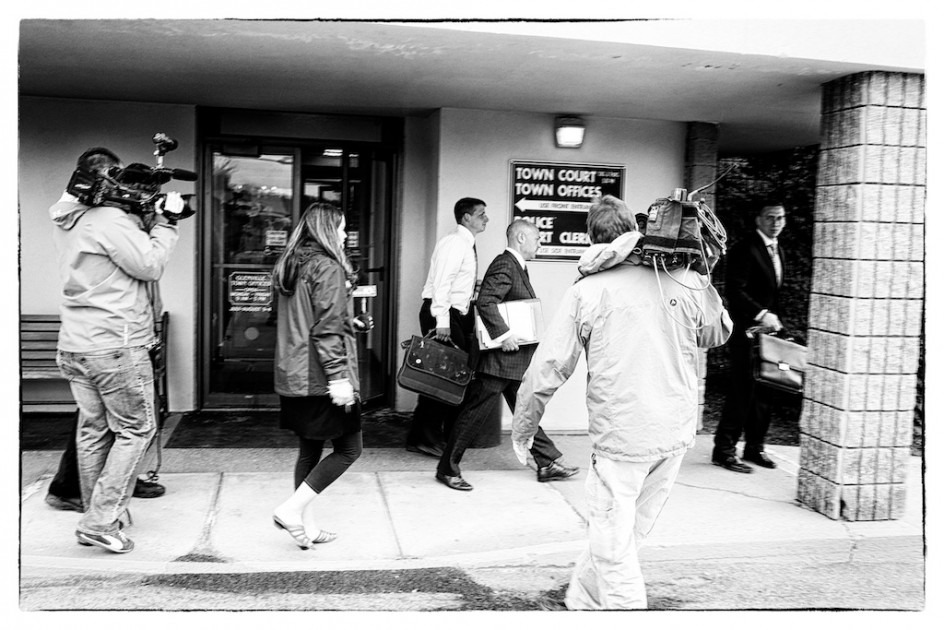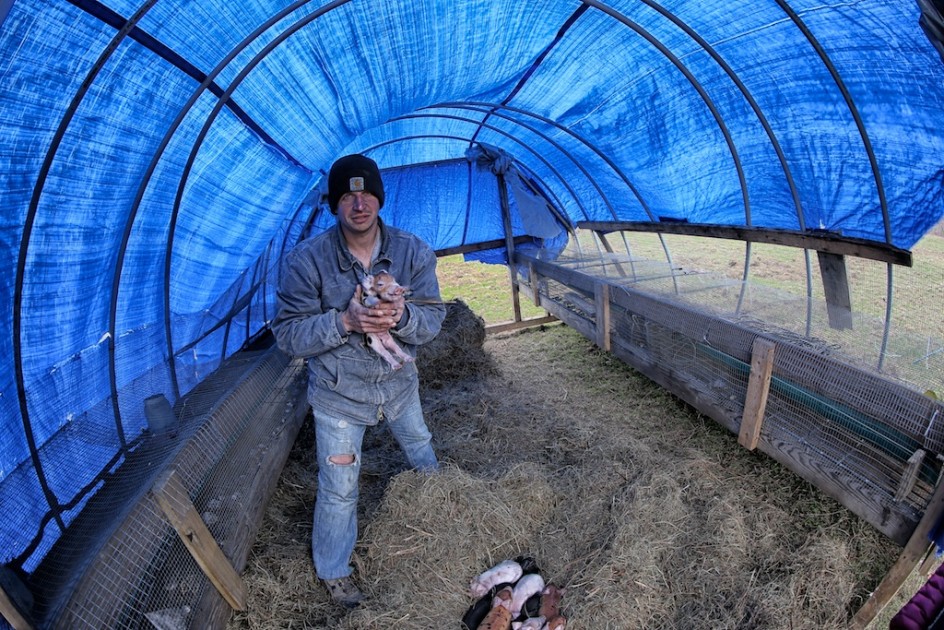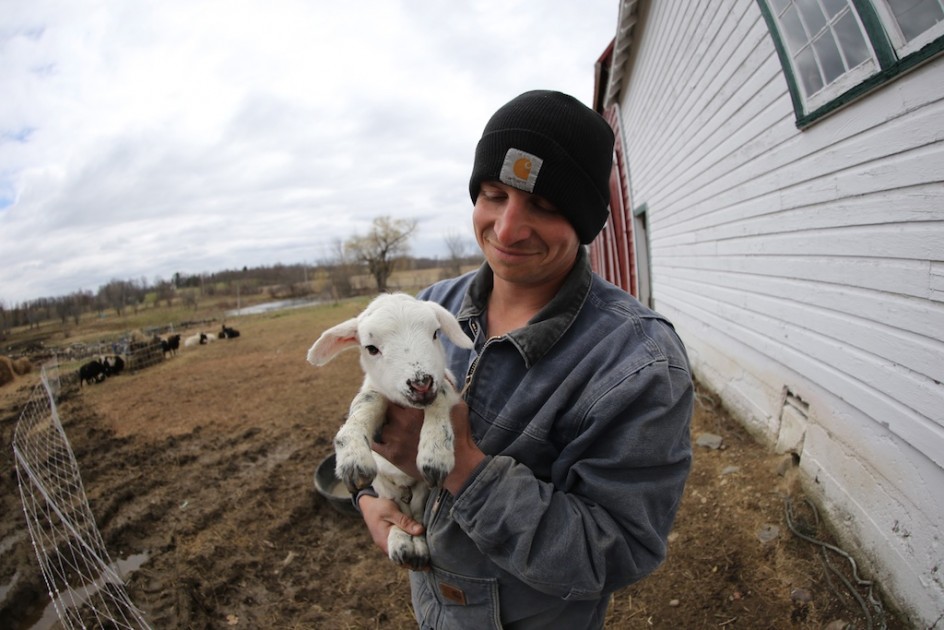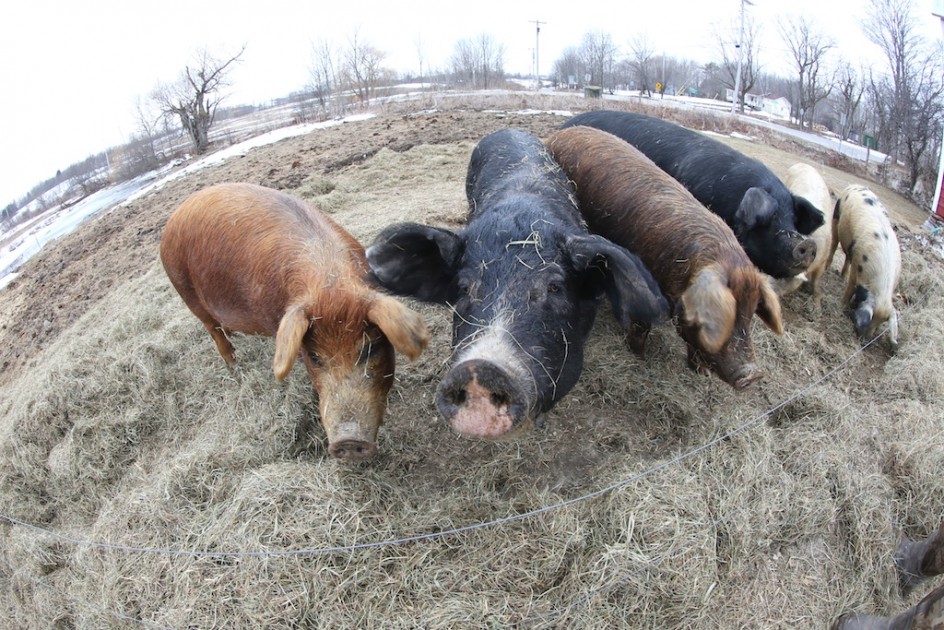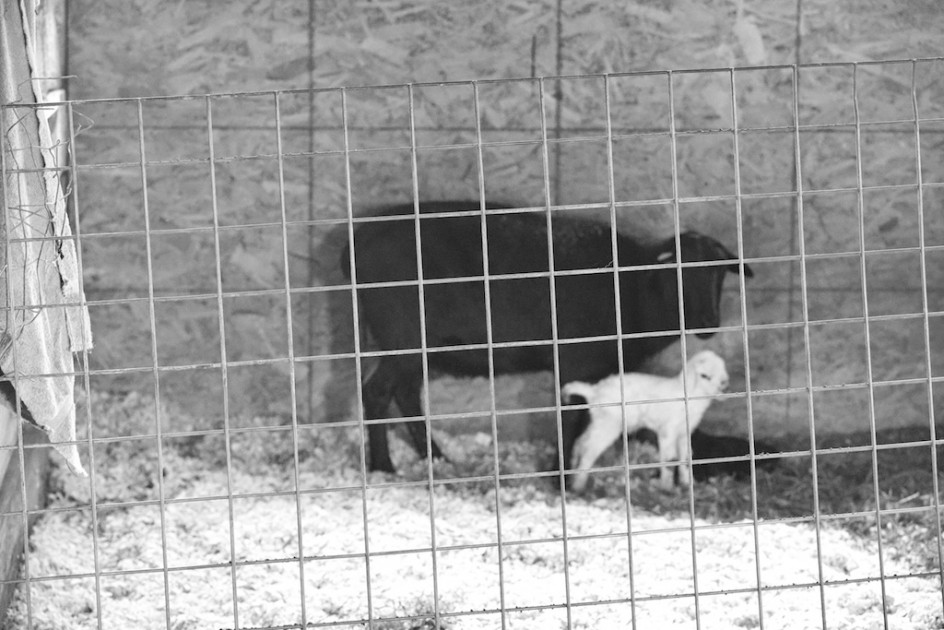
The writer Fyodor Dostoyevsky wrote that even though people sometimes speak about the bestial cruelty of man, it is unjust and offensive to animals to use those words, because no animal could ever be so cruel as a man, so artfully, so unthinkingly cruel.
It is sad to say, as someone who loves animals, that it sometimes seems that no people can ever be so cruel to other people as those who claim to speak for the rights of animals and in their name.
There is no evidence of any kind that Joshua Rockwood intended to be cruel to his animals or was, in fact, cruel to them. There are many witnesses – a score or more – of his concern for the well being of his animals. They live in better circumstances than many farm animals, and almost every one of the nine billion animals who live and die on corporate industrial farms.
Even his persecutors don’t argue that his animals were abused or subject to abusive treatment. His crime is that he is a young and inexperienced farmer who found himself and his new farm nearly overwhelmed by one of the worst winter cold waves in American history. Almost every one of the accusations against him is a technical one, if anyone had given him a day or two, or any kind of assistance, they would all have been simply gone a way.
If there is no evidence that Rockwood is cruel, there is overwhelming evidence that he was treated brutally, that secret informers, animal rescue workers and government officials set out to willfully and knowingly cause him pain and distress, to take his animals away, to charge him with ridiculously simple-minded and almost comically – in other circumstances – and unknowing violations of the law, and thus to ruin his reputation and destroy his new and fragile business.
So this is what is at stake in the case of Joshua Rockwood:
His arrest and persecution challenge us to ask ourselves what it means to be cruel, and to consider one of the most fundamental questions a society can ask about itself: it is really right to obsess on the welfare of animals beyond reason or justice or common sense while we trample on the rights and welfare of human beings and treat them in cruel and humiliating ways?
What Is Cruelty?
It is cruelty, according to the law and the dictionary, when a human being willfully or knowingly causes pain or distress to other people or to animals in his or her care. Animal cruelty charges can involve abuse or the failure to care properly for an animal. In March, Joshua Rockwood, a young farmer in Glenville, N.Y. was arrested and charged with 13 counts of animal cruelty.
His water tanks had frozen in sub-zero temperatures and he was charged with failure to provide potable water. He was late bringing water to some of his animals. He was also charged with having unheated barns, inadequate shelter and bedding for his pigs, and inadequate feed and water for the horses.
Joshua’s story is both troubling and uplifting. It is sad and unjust that he was arrested at all, uplifting in his grace and determination to defend himself, and reassuring to see the support he has drawn. It is frightening to see how mindless and void of reason – and wasteful – the legal process can be.
To understand what has happened to our increasingly displaced and inverted ideas of cruelty, it is important to know that two veterinarians have certified that Joshua’s animals were all healthy and hydrated just before the police raided his farm, seized his three horses and may very well have destroyed his young farm and his ambitions.
West Wind Acres is a part of the new and very welcome CSA local foods movement sweeping parts of the country in which people buy shares in a farm and it’s food, and the animals are treated well, fed in a healthy way, so people can know where their food is coming from and how the animals they are eating were treated. Joshua Rockwood is one of the most transparent and honest people I have ever met, you can see this for yourself. Farms like his are an alternative now only to corporate animal farms but to the corporate system of food distribution, which keeps prices high and many foods laced with chemicals and preservatives.
It is important to know that local CSA farms are a powerful antidote to the catastrophe befalling farm animals in many corporate industrial farms, where cows, pigs, chickens and sheep are raised in horrific circumstances of abuse beyond anything Joshua Rockwood has been accused of, or perhaps could even conceive. Unlike many of those animals, Joshua’s animals are given free range, access to the sun and pasture, open air and a life in nature before they are taken to slaughter and offered as grass-fed meats. Farms like his are the best hope of many farm animals living good lives.
The Real Cruelty
Rockwood’s animals live on a 90-acre leased farm, aside from the fact that they are all fed and watered daily (the cattle drink from streams), they live as close to nature as it is possible to get in the populated regions of New York State. His farm is the very antithesis of cruel.
Joshua is passionate about raising healthy food to sell locally, his animals all range freely and are fed on pasture grass and feed.
There is no evidence of any kind that Joshua, a husband and father to two small children, intended to harm the animals in his care – cattle, pigs, sheep, chickens, dogs and horses. None of his animals were suffering grievously, had sores or wounds, or died during the awful winter or were in any way abused. He has been faithfully honest about what he knows, seeks to learn and has learned. As Americans move away from farms and animals, his arrest reminds us that we have lost any sense of reality about the lives of farmers or the animals in their care.
But this is what we know about cruelty and what happened to Joshua Rockwood:
– The police came to his farm with an open warrant, which means they can return at any time. There were police officers, Humane Society representatives, trailers from horse rescue farms, a small animal veterinarian with no experience working on farms.
Secret Informers
– A secret informer called the police to say they had concerns about Joshua’s dogs. He does not really know, even now, why they seized his horses. They say it was because there was no visible feed. He has said there were unrolled bales of hay on his farm, they were not yet cut open and brought to the horses.
– He was charged with 13 counts of cruelty and neglect. Two pigs out of scores had gray matter on their ears, of course farmers know that when the temperature gets to -27 degrees, as it did in Glenville, N.Y., this February, animals like cows and pigs and sheep can suffer frostbite on their ears if they are inside or out.
Farmers also know something the animal police on Joshua’s farm did not know, that farm animals are never kept in heated barns, it is both unnecessary and unhealthy.
– His horses were taken to a nearby horse rescue farm, the same farm that was present during the police raid. To even consider getting his horses back, the rescue farm is asking for $7,500 in boarding and administrative and medical costs for the first 30 days alone. Since they have been on the rescue farm for nearly three months, it may cost him more than $22,000 to get his three horses returned, even if he is found innocent of all of the charges.
He is challenging the fees in court. The horses, he said, had been given food and water continuously. This claim was supported by the two veterinarians who examined the horses days before they were seized and said they were healthy and well fed and of good weight and body. Obviously, they could not have been either if they were being starved or denied adequate food.
(I would add it makes little sense for Joshua to starve any of his animals, as he sells them for meat, and their value is determined by the quality and volume of the food they eat. No one, not even the police or the animal rights veterinarian who showed up to help them claimed any of the animals on his farm were malnourished or emaciated.)
– Joshua was treated as a dangerous criminal. He was arrested, photographed, his mug shot released to local newspapers and television stations. Prosecutors wanted bail set, they said he might be a flight risk. The image of him as an animal abuser was disseminated all over the state. Many of his previously satisfied customers stopped buying meat from him.
– During the cold wave, or their visits to his farm, no one in the police, animal rescue movement, or local government offered to assist him in any way, to help break the frozen ice on his stream or heat the water bowls and tanks he was using. (On the day he was arrested, the sewage pipes in the town hall froze, backing sewage up for several days. No one was arrested or charged with cruelty or neglect.)
It is fair to say that most, if not all, of the small farmers in the Northeastern United States had water lines or tanks freeze in this winter (including me), hundreds have sent Joshua money, come to his hearings, offered help and support. It could have been me, they say, almost every one.
– Before he could even speak on his own behalf, Rockwood’s reputation was severely damaged. The media is much better at reporting accusations than findings of innocence. He if fighting hard, but he may end up losing his farm and his sustenance. He has raised more than $56,000 in a gofundme site online for legal costs, he will need at least that much to defend himself.
– Joshua has spent tens of thousands of dollars in legal fees and lives under a dark and fearful cloud (as do the New York Horse Carriage drivers). He has had three court appearances already, and the criminal phase of his ordeal has not yet even been scheduled.
Who Is Guilty Of Cruelty?
– Joshua is strong and grounded, but he and his family have suffered extreme stress, anxiety and disruption. They are not certain whether or not they will keep their farm or lose their livelihood and way of life.
I have not yet seen any evidence that Rockwood’s animals were treated cruelly. But he was treated cruelty. It is illegal to be cruel to animals, but not apparently, to people if they are accused of being cruel to animals.
in a truly just world, the people who informed on him, who arrested him, who did not offer to help him, who do not understand that barns are not heated on farms, or that animals can get frostbite in winter, or that healthy and hydrated animals cannot have been underfed, or that water tanks freeze in bitter cold, or that small independent farmers don’t have $21,000 lying around to buy back the animals that should never have been taken in the first place, ought to be in a lot of trouble.
They are guilty of people cruelty.
They have behaved in a much crueler and neglect way than Joshua Rockwood did.
It makes no sense legally or morally to seize animals who are well cared for during an intense weather crisis and use the weight of the courts, prosecutors, animal rights organizations and the police to invade a farm, seize valuable and much loved property to destroy the reputation, work and way of life of an idealistic and hard-working young farmer.
I recently returned from a speaking trip to Iowa, an agricultural state, many farmers came to hear me talk and meet with me. I told them the story of Joshua Rockwood and his arrest and everyone one of them, in three different towns and cities, said the very same thing to me: “why didn’t someone help Joshua get some water out to his animals?” Every year, said the farmers, in almost every winter in Iowa, water tanks freeze and when they do, the farmers and the police and fire departments and Granges and farm associations all rush to the struggling farms and bring potable water and portable propane heaters.
“What,” I asked the farmers over and over again, would happen if one of those farmers in Iowa was arrested for animal cruelty? In one way or another, each of the farmers and their husbands or wives said the same thing: “why, that would be outrageous. Whoever arrested Joshua Rockwood ought to be charged with cruelty and neglect.”
It is a noble thing to be concerned about the welfare of animals, to protect their rights and their welfare. It is a perversion of justice and morality to use the love of animals as a pretext and justification for abusing human beings. It is always wrong for people to abuse their power, against animals, against their own citizens.
The fact is that none of Rockwood’s animals suffered nearly as much as he has, or as cruelly, or for nearly as long. I am struggling to see the justice in that.
Joshua Rockwood was already fighting for his farm, it seems unconscionable to me that he has to fight for his life as well. Freidrich Nietzche was right. We can talk about animal cruelty all we wish, but the moral of the Rockwood case is that man is the cruelest animal of them all.

